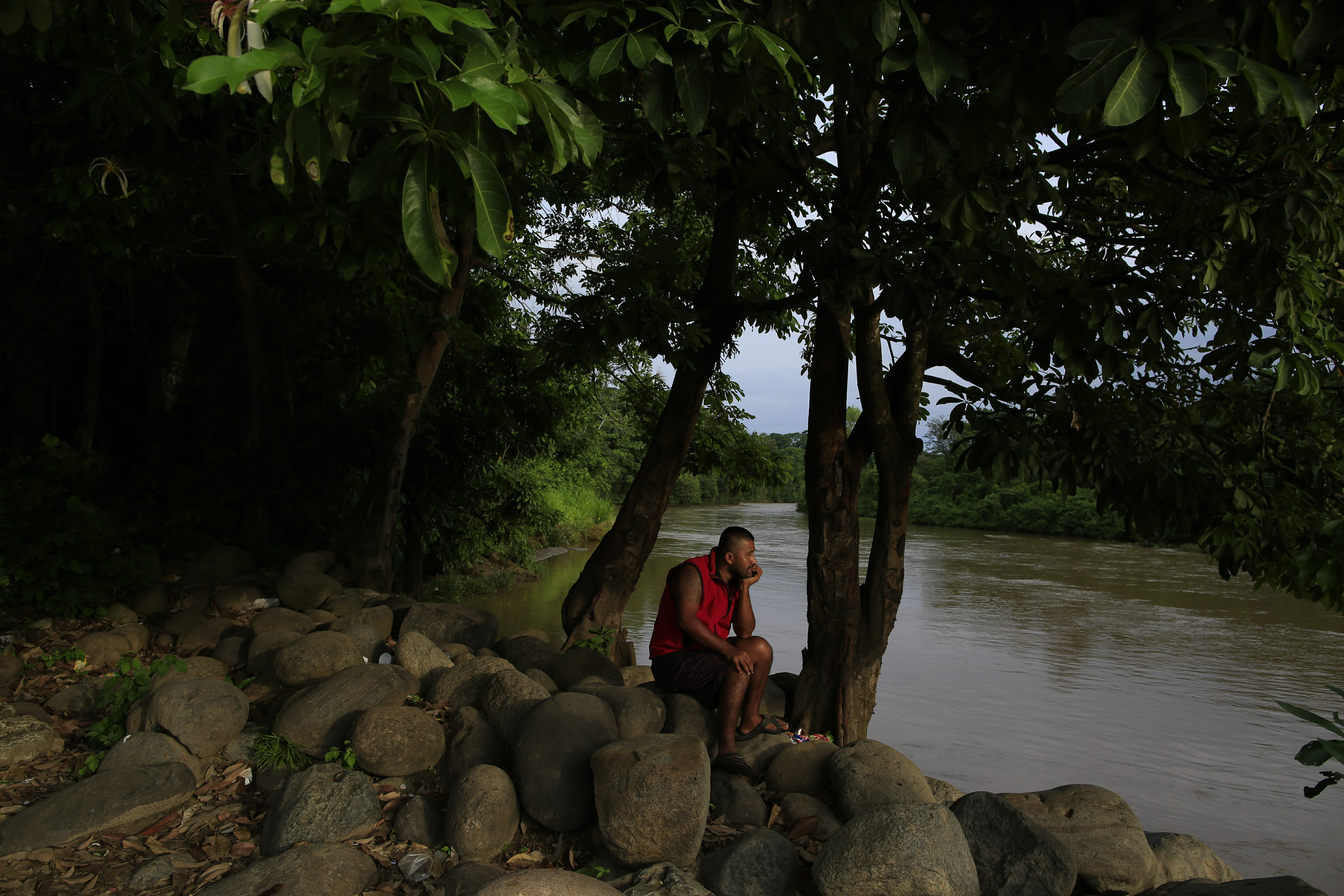
Mexico to tighten security at 68 border crossings
MEXICO CITY (AP) — Mexico’s immigration chief resigned Friday and the country’s prisons director was swiftly nominated to replace him, as the country embarks on a crackdown on irregular migration through its territory in response to U.S. pressure.
The National Immigration Institute said in a brief statement that Tonatiuh Guillén thanked President Andrés Manuel López Obrador for the opportunity to serve the country, but it did not give a reason for why he presented his resignation.
“I thank Tonatiuh very much. He helped in the beginning of this government,” said López Obrador, who had asked that the immigration chief step down. “Now I am proposing as his substitute Francisco Garduño.”
Guillén is a sociologist and former academic at the prestigious Colegio de la Frontera Norte university in Tijuana. Garduño holds a law doctorate and has served as commissioner of Mexico’s penitentiary system. On Tuesday he was named to a five-person team responsible for implementing Mexico’s immigration plan reached in negotiations with Washington.
Guillén had largely remained out of the public eye during the recent tensions with the United States, when President Donald Trump threatened stiff tariffs on all imports from Mexico if the country didn’t do more on immigration. Trump suspended the tariffs late last week.
Mexico’s plan to slow migration has been coordinated by Foreign Relations Secretary Marcelo Ebrard. Shortly before the statement, Chamber of Deputies President Porfirio Muñoz Ledo, a lawmaker from López Obrador’s Morena party, accused Ebrard of hogging responsibilities that weren’t his purview.
During the session, the Foreign Ministry sent the first public document signed by Mexican and U.S. authorities to the chamber.
The document was a “complementary agreement” to the joint declaration that would take effect in mid-July if Mexico fails to meet its commitment to reduce the flow of migrants. In it, both governments commit themselves to reaching an agreement on the responsibilities of each in processing asylum applications. This would mean that third-country nationals who cross one of the countries would be received in that country which would take responsibility for their refuge.
Several senators said this implied that Mexico was accepting that it could eventually become what is known as a “safe third country,” but Mexico’s foreign ministry denied this.
At an April news conference with Ebrard and Interior Secretary Olga Sánchez Corder, Guillén appeared to show some distance with the two as they expressed support for a tougher policy on irregular migration.
Earlier Friday, López Obrador acknowledged that controls are lax at dozens of crossings at the country’s southern border and vowed to correct the situation.
“We have identified 68 crossings like that, and in all of them there will be oversight,” López Obrador said at a morning news conference, responding to questioning about checkpoints where cross-border traffic was seen coming and going freely.
The president, who took office Dec. 1, attributed the problem to residual corruption at the National Migration Institute and the customs agency and noted that more than 500 immigration workers have been let go as part of a purge.
“We are cleaning house, but this work takes time,” López Obrador said.
Mexico has promised to deploy 6,000 members of its new, still-forming National Guard to control immigration in its southern border region with Guatemala as part of its recent agreement with the United States.
Ebrard said Friday the Guard deployment will be readied by Tuesday, along with 825 immigration agents and 200 officials from the country’s welfare department.
He later told the Senate that from the standpoint of infrastructure needed to confront the migratory flows, “we were not prepared for this.”
But there has been no sign so far of any National Guard presence in the southern city of Tapachula, near Guatemala. Nor has there been any notable change at the Suchiate border river, where locals and migrants alike commonly cross.
Police and immigration had already stepped up enforcement in southern Mexico in recent months, setting up highway checkpoints, raiding a recent caravan of mostly Central American migrants and trying to keep people off the northbound train known as “the beast.”
Ebrard called on the United Nations and the international community to help Mexico bring immigration under control and fight human trafficking.
“Do not leave us alone,” Ebrard said. “Where is the international community? Central America needs to help us.”
He added that many countries kept silent during Mexico’s talks with the United States in which the threatened tariffs were suspended last week.
The governors of the southern Mexican states of Chiapas, Tabasco, Campeche, Veracruz and Oaxaca were also present at the Friday press conference and promised to support the federal government’s immigration plan as it rolls out.
The Western Journal has not reviewed this Associated Press story prior to publication. Therefore, it may contain editorial bias or may in some other way not meet our normal editorial standards. It is provided to our readers as a service from The Western Journal.
Truth and Accuracy
We are committed to truth and accuracy in all of our journalism. Read our editorial standards.
Advertise with The Western Journal and reach millions of highly engaged readers, while supporting our work. Advertise Today.












